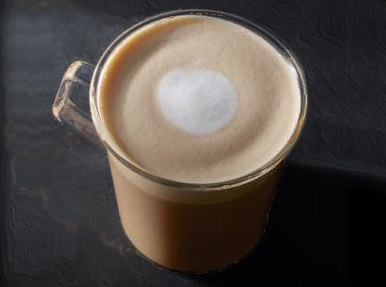Welcome, Townhall readers! This is the Common Sense archive of the December 2, 2018, column at Townhall.com. For more links to this column, click here.
Paul Jacob
“I’ve started new companies for less money than a cup of coffee costs you there,” the businessman raged. Someone had mistakenly mentioned Starbucks at a political reception, and off went the debate/discussion/lecture for 15 or so minutes.
I know because that Starbucks-defending someone was me.
Years before that, I believe it was comedian Jerry Seinfeld who mocked the costly brew by dubbing the company, “Fourbucks.” I only wish. My preferred drink — a venti flat white (four shots of ristretto espresso with steamed milk) — is now five dollars . . . and some 57 cents with tax.
Which bugs me terribly because I much prefer when things are free. Or really, really inexpensive, as close to free as humanly (or even robotically) possible.< But hey, where else can I get a flat white? Moreover, so far, we are keeping up with the mortgage, college tuition and Starbucks. (Aren’t we, honey?)
Of course, the Seattle-based company also sports a progressive political bent. This past April, a Philadelphia store had police arrest two black men for refusing to leave . . . after refusing to make a purchase. The men were waiting to meet someone. The corporation apologized and, weeks later, all 8,000 coffee outlets nationwide were closed for a day of sensitivity training on racial bias.< Sensitivity training is more band-aid than cure, but the action was certainly swift and comprehensive. Starbucks caught earlier controversy, back in 2015, for instructing its employees to start conversations about race with customers. I’m a daily patron, and Starbucks personnel did indeed converse with me during that time, but not a word was uttered about race. After five days, the company announced it was ending the program. Not because of the negative reaction, supposedly, but because they had always planned to end so soon.
And of course, every year in this Christmas and/or holiday season — take your pick and be outraged by the other — there seems a new brouhaha (brew-haha?) over the design of the coffee cup . . . and its deeper meaning.< In 2015, Joshua Feuerstein, a pastor-turned-“social media personality,” said, plainly enough, that Starbucks removed “Christmas from their cups because they hate Jesus.” On the other hand, neither the word Christmas nor its depiction had ever been on the chain’s cups, and therefore, could not be removed. Now rumors swirl around Howard Schultz, former Starbucks chief, for allegedly contemplating a campaign for the Democratic Party’s presidential nomination. But he is already off to a poor start by talking way too conservative. “It concerns me that so many voices within the Democratic Party are going so far to the left,” he told CNBC. “I say to myself, ‘How are we going to pay for these things,’ in terms of things like single payer (and) people espousing the fact that the government is going to give everyone a job.”
Schultz even highlighted “this $21 trillion debt hanging over . . . America and future generations. The only way we’re going to get out of that is we’ve got to grow the economy, in my view, 4% or greater. And then we have to go after entitlements.”< Wake up and smell-the-coffee sort of stuff, no? Not that I want Howard Schultz to be president. Only that the Democrats have nominated worse. Recently. But who am I kidding, the reasons I spend money at Starbucks transcend politics. I’m an addict. And with nine Starbucks stores within two miles of my home, one open 24 hours a day, where can I go to say, “I’m Paul Jacob and I’m a latte-sipping libertarian”? Yet, don’t think the addiction is merely to caffeine; it is also to capitalism and camaraderie. Starbucks couldn’t get people to pay five bucks for a cup of anything if the experience wasn’t worth five bucks to them. The place produces value in the eyes of their many customers. I like that anytime I do not like my drink, which is rare indeed, I can get it re-made to my satisfaction. That’s good business.< And the coffee shops are great places to meet, to work, to hang out — incredibly friendly places. I’ve experienced that locally, nationally and internationally, in thousands of personal visits. And paid for the privilege.< That’s why Starbucks reacted so strongly to the previously-mentioned Philadelphia incident. “Coffee is what we sell as a product, but it’s not what our brand stands for,” Shultz said at the time. “Starbucks is about human connection and a sense of community inside our stores.”< Being a mainliner, I get to know the local employees, mostly young people, very well over time. That I also like very much. One current employee is a friend of my daughter. To see him, and the others, learn the ropes of working a job with a lot to do (lots of customers and money incoming) warms my heart. He is now a shift manager or supervisor or whatever it’s called. What a win-win situation. Starbucks grows rich “on the backs” of these young people, who grow into confident, value-adding, marketable adults “on the back” of this big corporation. Ah, the intersection of American capitalism and caffeine-enhanced community.
Townhall.com
December 2, 2018

